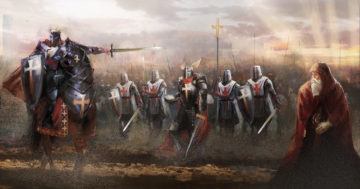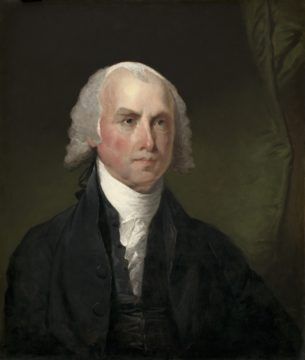by Mark Harvey

The trouble with theocracies is that they generally lead to crusades. And the trouble with crusades is that if you’re not of the right sect or denomination, you’ll end up crucified. Theocracies lead nowhere, bring great suffering on peoples, stifle creative thought, and have women covered or in the kitchen. They do anything but lead to paradise on earth. But they do give people a taste of hell.
Whether it’s the Taliban in Afghanistan, the Isis caliphate in Iraq and Syria, or The Islamic State of Iran, theocracies are inherently oppressive, and regressive. They subscribe to the idea that there is only one God, he is to be obeyed without question, and that those ruling in a theocratic government have some sort of manifest connection with that God.

To some degree, Americans have been spared the ravages of theocracies. We are perhaps most indebted to James Madison for that. Madison, sometimes called the father of the Constitution, understood well in advance of 1789 when the framers met in Philadelphia, that the new nation being formed needed to be free and clear of the factionalism so often created by religious zealots. In letters to his close friend Thomas Jefferson, Madison wrote, “When Indeed Religion is kindled into enthusiasm, its force like that of other passions is increased by the sympathy of a multitude….Even in its coolest state, it has been much oftener a motive to oppression than a restraint from it.”
I have no issues with religion per se. I think it genuinely helps some people navigate their lives and having a faith strong enough to maintain an unswerving optimism in the face of life’s hardships is even enviable. For the truly dispossessed and bereaved, a belief in God may be the last thing to cling to. Ralph Waldo Emerson, one of our great writers and a transcendentalist, called the religious sentiment “mountain air” and “the embalmer of the world.”
“It makes the sky and the hills sublime, and the silent song of the hills is it,” he said. Read more »
